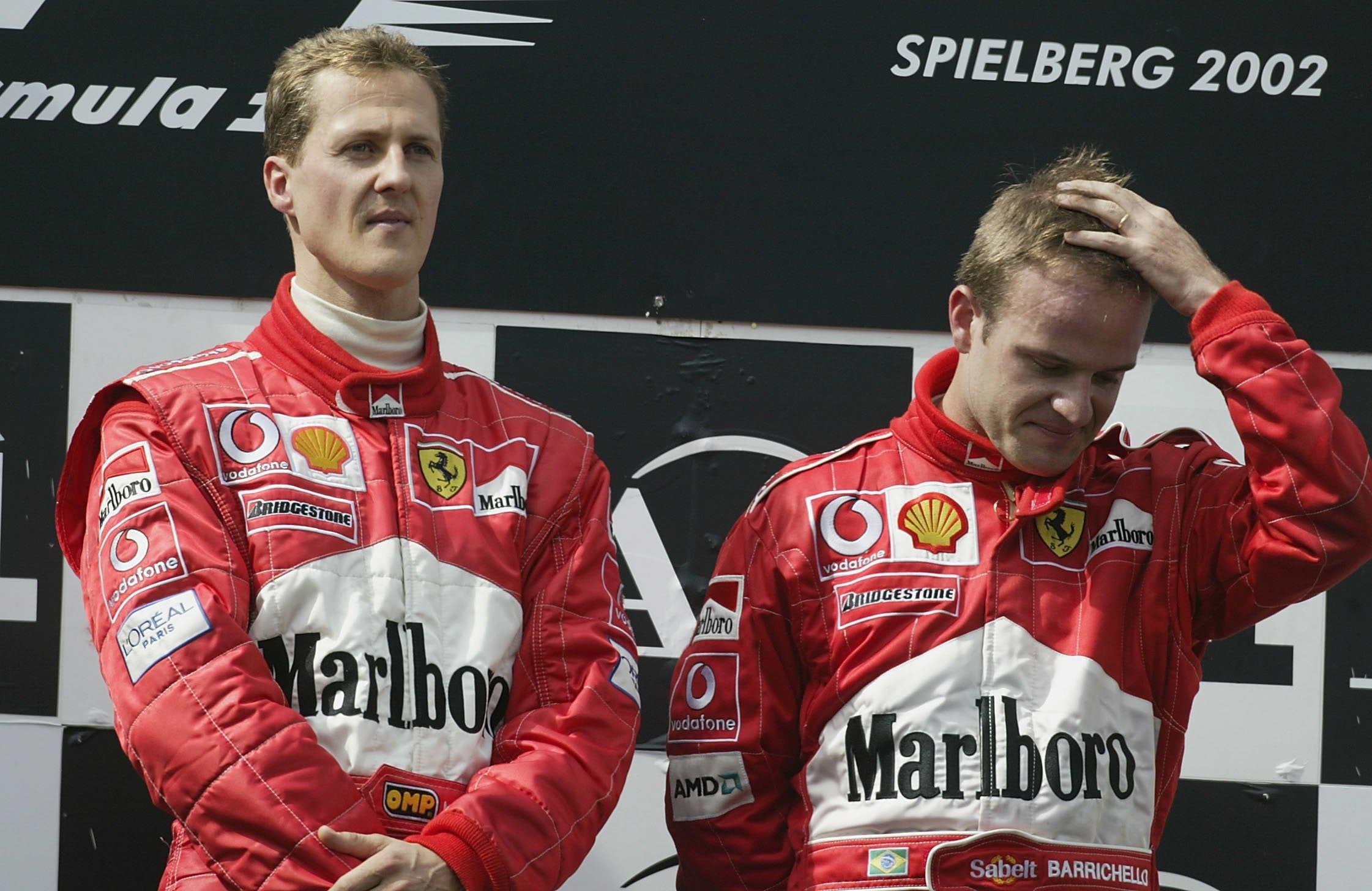Ferrari, Carlos Sainz and how Austria team orders should act as a stark warning
Carlos Sainz ignored team orders at Silverstone in a clear contrast to 20 years ago in Austria when Rubens Barrichello obeyed an instruction to step aside

Amid the myriad of talking points after Sunday’s exhilarating British Grand Prix at Silverstone, one incident which has not gone unnoticed involved race-winner Carlos Sainz’s very direct and forthright rebuttal to Ferrari’s instruction to impose team orders; a call which effectively earned him his maiden Formula 1 victory.
With race leader Charles Leclerc the only member of the top-four not to pit for fresh rubber, Ferrari told the Spaniard to keep 10 car lengths away from the Monegasque ahead of him during the safety car period to protect their Championship hopeful. Sainz, quite rightly, protested in disagreement and his subsequent overtaking of his teammate was an inevitability.
The dilemma presented to Sainz is undoubtedly uncomfortable in a sport often split between team and individual priorities. On this occasion, Sainz’s decision proved fruitful. And yet, with two Scuderia drivers neck-and-neck, we’ve been here before.
In 2002, at the formerly named A-Ring in Spielberg which will host this weekend’s Austrian Grand Prix, the sport saw one of the most contentious conclusions to a race in World Championship history. A dark day in the history of Ferrari and a moment, and reaction, which forced the FIA to revisit their own regulations.
Leading the Grand Prix heading into the final lap, one second ahead of teammate and Championship leader Michael Schumacher, Rubens Barrichello was given the instruction no driver wants to hear. Quite unfathomably, Ferrari team principal Jean Todt ordered the Brazilian to move aside, for the “best interests” of the team, as they targeted a third-straight Drivers Championship for the unflappable Schumacher.
“The reason it came on the last lap was because I said no the whole time,” Barrichello tells The Independent, 20 years on.
“That shouldn’t have been the case. I wished I had a telephone at the time so I could call my dad and ask for his opinion!”
Of course, there was no chance for a second viewpoint on speed-dial. Wedged firmly in the archives of F1’s most notable controversies, Barrichello allowed Schumacher to glide past him a matter of metres from the chequered flag. James Allen, commentating for ITV, summed up the thoughts of millions: “I do not believe it! I do not Adam and Eve it! What is going on?”
Barrichello, who at that time had only achieved one race victory, was impressively magnanimous in the immediate aftermath and remains to this day: “I had no time and I had to take an action. I think 99 per cent of the whole world, if they had listened to what I had listened to, would have done the same.
“Now the team radios are open to everyone because of that day. In the end, it had a positive impact on the Formula 1 world.”
Todt has since admitted he was in the wrong to invoke team orders in that scenario, particularly given Schumacher coasted to the Championship by 77 points to Barrichello – who took top spot on the podium at Schumacher’s request that day in May 2002. Ferrari’s technical director at the time, Ross Brawn, now Formula 1’s managing director of motorsports, also looked back with regret, describing the episode as “on reflection… a mistake”.
The response, on the day in the stands and in the months after across the motorsport world, was fury. The FIA moved to bar “team orders that interfere with the race result” from the 2003 season onwards, a rule which has since been dropped. Yet team orders – and the predicaments they bring on the pit wall and in the cockpit – remain rife to this day, seen earlier in the season in Barcelona when an irritated Sergio Perez was overtaken by Red Bull teammate Max Verstappen and on Sunday in scarlet red at Silverstone.
Quite what Ferrari’s outlook is now – with just 11 points separating Leclerc and Sainz in the leaderboard – heading into the half-way mark of the season is anyone’s guess. Leclerc dismissed claims of disunity in the camp on Thursday ahead of the second sprint weekend of the season.
But as Formula 1 rolls back into the spectacular Styrian mountains with Ferrari challenging at the top once again, memories of yesteryear should act as a reminder that, often, the most effective methodology is to just let the drivers drive.
Subscribe to Independent Premium to bookmark this article
Want to bookmark your favourite articles and stories to read or reference later? Start your Independent Premium subscription today.

Join our commenting forum
Join thought-provoking conversations, follow other Independent readers and see their replies